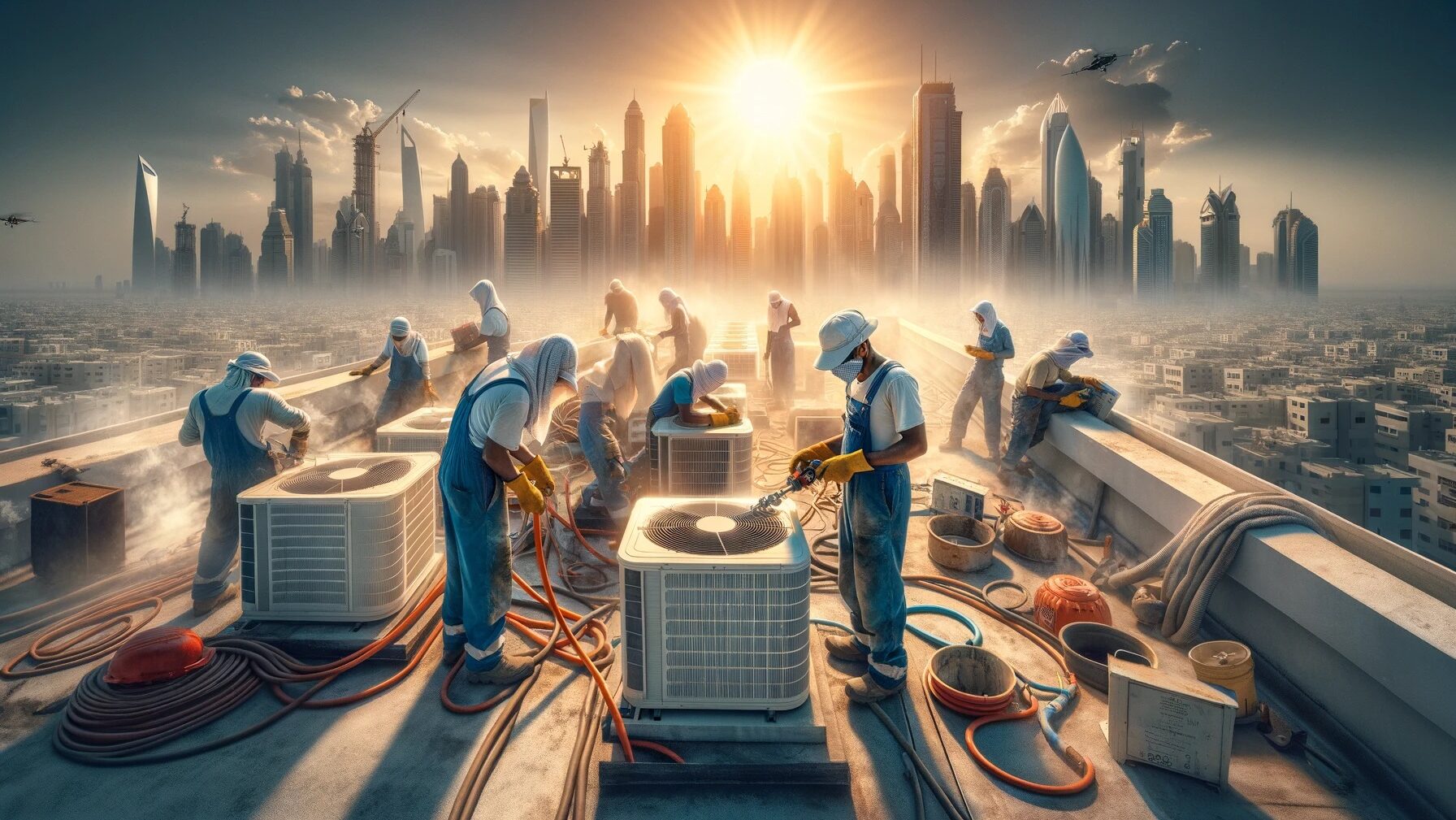On International Migrants Day, HRW Reports GCC Migrant Workers Face Extreme Heat With Little Protection
On International Migrants Day, Human Rights Watch (HRW) released a report that shed light on the crucial yet overlooked role of migrant workers in managing the extreme heat in Gulf Cooperation Council (GCC) countries. Despite their indispensable contributions, these workers are often exposed to hazardous conditions without adequate protection.
The report underscores the increasing risks associated with climate change in the Gulf region, where migrant workers face the brunt of the extreme temperatures. HRW interviewed air conditioning repair technicians, a group critical in safeguarding Gulf residents from heat-related dangers. These technicians detailed urgent repair requests and their exposure to harsh working environments.
Give the gift of hope
We practice what we preach:
accurate, fearless journalism. But we can't do it alone.
- On the ground in Gaza, Syria, Israel, Egypt, Pakistan, and more
- Our program trained more than 100 journalists
- Calling out fake news and reporting real facts
- On the ground in Gaza, Syria, Israel, Egypt, Pakistan, and more
- Our program trained more than 100 journalists
- Calling out fake news and reporting real facts
Join us.
Support The Media Line. Save democracy.
Michael Page, HRW’s deputy Middle East director, emphasized the contradiction in Gulf state policies: Migrant workers are essential in mitigating climate risks but are treated as disposable. The report documents various abuses faced by these workers, including wage theft, exorbitant recruitment fees, and extreme heat exposure.
While the United Nations COP28 conference in the United Arab Emirates recognized the need to shift away from fossil fuels, it lacked a definitive commitment to phase them out. The GCC countries, under the kafala system, continue to host large migrant worker populations, leaving them vulnerable to exploitation.
The report highlights the urgency for GCC countries to address these widespread abuses, as the region grapples with temperatures that threaten human habitation. Migrant workers, crucial in maintaining and repairing infrastructure, face increasingly challenging conditions as temperatures rise.



